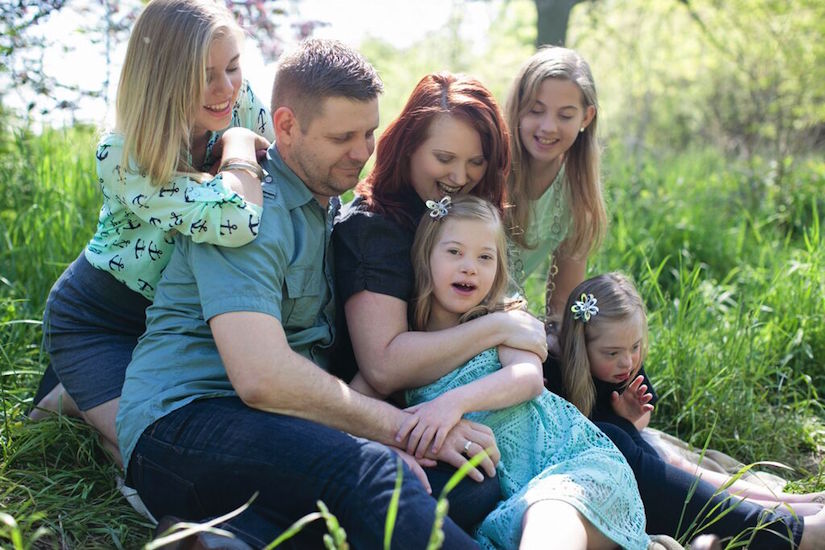10 Things to Say When a Baby With Down Syndrome Is Born
When I wrote “10 Things Not to Say to a Parent of a Child With Down Syndrome,” someone emailed me a day or two later.
“My father and I were talking about your post about 10 things not to say to a parent of a child with Down syndrome, and we were wondering … What should we say? … Please, help us. We really want to know.”
I was touched by this person’s desire to learn about such a delicate subject.
I’ve given this some thought. I know every parent is different, so not all of these on my list will resonate with everyone.
Here’s my list of 10 things to say to when a baby with Down syndrome is born.
1. How are you doing?
After my daughter Polly’s birth and diagnosis of Down syndrome, I appreciated friends and family asking how I was doing. I realize not everyone would want to talk about their feelings, but it meant a lot to me when people reached out and “went there.”
2. He/she has your eyes/nose/hair etc…
One of the things I worried about after Polly’s birth was that she wouldn’t look like the rest of our family. Of course, she does. Sure, it’s noticeable that Polly has Down syndrome. Her eyes are almond-shaped. Her nose is a bit flat. But she also has blonde hair like her sisters. She has my smile.
At first, I just wanted to know that although she had Down syndrome, she was my baby.
3. How’s her health?
Most people are aware that an extra chromosome on the 21st pair brings with it added medical concerns. I was fine when people asked about Polly’s health. It provided common ground, something to talk about during awkward pauses. And of course, friends and family asked so that they could pray for her health.
4. You are going to be a great parent.
I needed to hear these words. I was afraid. Down syndrome was new. I would have loved the reassurance.
5. We brought the baby a present.
Our daughter was sick right after her birth for three weeks. We went from having a baby to having a sick child. Polly didn’t get gifts, and we didn’t get cards with hearty congratulations on the birth of our child.
If you are going to see a family after their baby is born with Down syndrome, bring a cute outfit, or balloons, or a stuffed animal. In other words, celebrate new life.
6. I am bringing you a meal Tuesday at 6 o’clock.
Offer practical help. And don’t say, “What can I do?” or “Let me know if I can help.” Parents are too out of it to ask. Just tell them you are bringing a meal. And be specific. Give the day and the time. The parent will check it off her list. Being concrete will put her mind at ease.
7. Can I hold him/her?
Pay attention to the new baby. Hold him. Cuddle him. Love on him. Pray for him. Your tangible, bodily acceptance will have a great, positive effect on the family.
8. We’d like to take the other kids out to a movie on Saturday and then have them over for pizza.
Once again, tangible help. If there are other children in the family, chances are they are getting lost in the shuffle. Schedule a time to take the kids out to do something fun. Again, tell the parents when, where and for how long.
Another tip: take them for a full afternoon or for the day. Parents need time together and with the baby, and they need to know their other kids are attended to.
9. You make beautiful children.
I always say this to a new parent, and I always get a huge smile in return. Parents crave assurance that they did well, because trust me, in the beginning they might not be sure when Down syndrome is in the picture. Compliment the baby. Fuss over her. And compliment the parents on a job well done.
10. Congratulations on the birth of your baby!
I don’t recall getting congratulated. Those first days are squiggly in my mind, but oh how I’d love a story to pop up of someone embracing me and congratulating me on this new little life I produced with what I believe was God’s help.
Make a big deal over the baby. It’s a baby! And she/he and the parents deserve all the love, attention and excitement that comes with new life.

Parents, what would you add?
Follow this journey on Gillian Marchenko’s site. Read about her memoir, “Sun Shine Down,” here.

